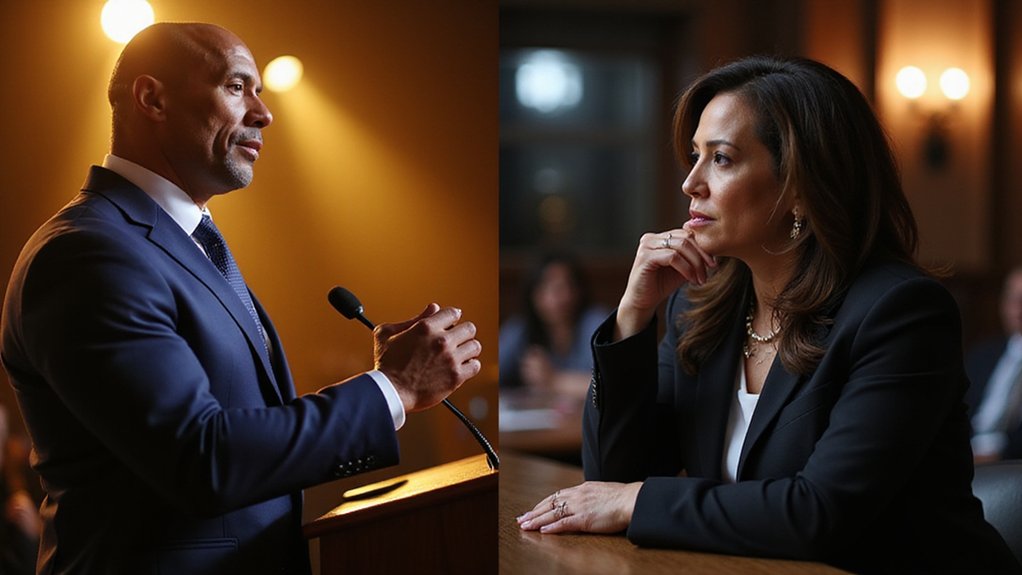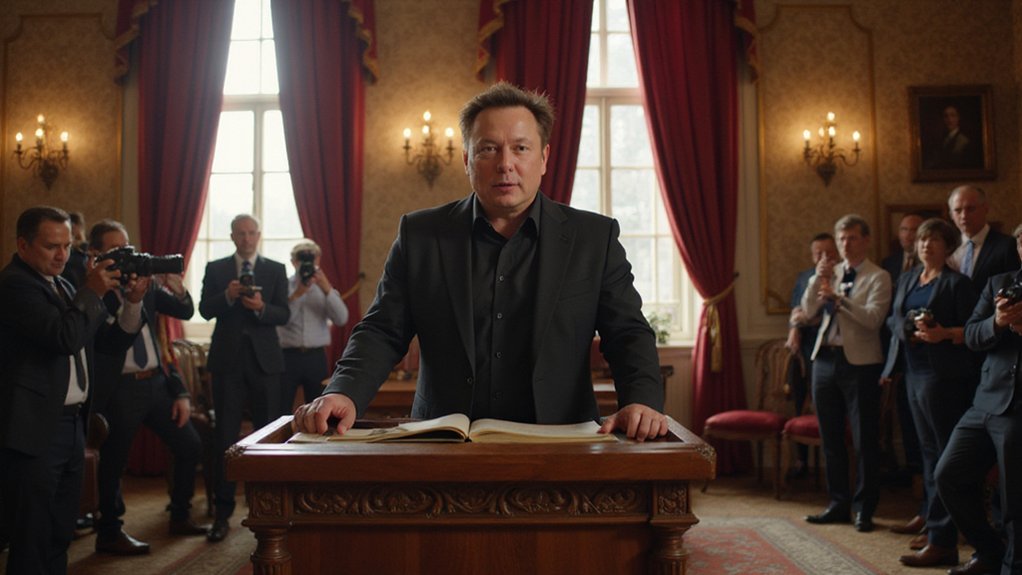While political prognosticators have long dismissed celebrity candidacies as fleeting spectacles, the decentralized prediction market Polymarket has delivered a peculiar verdict that would make even the most seasoned Washington insiders do a double-take: Dwayne “The Rock” Johnson now commands better odds (7%) of securing the 2028 Democratic nomination than sitting Vice President Kamala Harris (5%).
The market’s $17 million betting volume suggests this isn’t merely speculative froth—traders are putting substantial capital behind their convictions. Johnson ranks fourth overall, trailing only Gavin Newsom’s commanding 31% probability, Alexandria Ocasio-Cortez‘s 11%, and Pete Buttigieg‘s 7%. Harris finds herself awkwardly tied with Kentucky Governor Andy Beshear, a position that would have seemed inconceivable just months ago.
Seventeen million dollars in betting volume transforms political speculation into hard market reality, relegating sitting Vice Presidents to statistical ties with governors.
What makes this development particularly intriguing is Johnson’s carefully cultivated political positioning. The former wrestler identifies as a centrist independent who endorsed Biden in 2020 but conspicuously abstained from subsequent endorsements. His 392 million Instagram followers represent a digital constituency that dwarfs most traditional political machines, while a 2023 poll showing 46% support for his hypothetical candidacy prompted overtures from multiple parties. Johnson was approached by multiple parties regarding a potential presidential run, demonstrating serious institutional interest in his candidacy.
Polymarket’s mechanics—allowing users to speculate on real-world events with actual monetary stakes—provide a fascinating laboratory for political sentiment. The platform’s investment backing from 1789 Capital and advisory relationship with Donald Trump Jr. adds another layer of complexity to these predictions. The market features a November 7, 2028 resolution date that will determine the ultimate outcome.
Trading volumes tell their own story: Newsom has attracted over $750,000 in activity, Harris $525,000, and Johnson $455,000, indicating serious institutional interest. Like cryptocurrency assets where market cap reflects investor confidence and liquidity, these political betting volumes reveal the depth of trader conviction behind each candidate.
The broader Democratic field reveals a party grappling with identity and direction. Beyond the headline grabbers, names like Josh Shapiro, Gretchen Whitmer, and Jon Ossoff hover in single-digit territory, while Jon Stewart and Stephen A. Smith occupy the speculative margins with 2-4% probabilities.
Whether Johnson will actually mount a campaign remains unclear, but the betting markets have already rendered their verdict: in an era where traditional political experience carries diminished currency, celebrity magnetism combined with centrist positioning might prove a more valuable commodity than conventional wisdom suggests.
Harris, meanwhile, faces the uncomfortable reality that her institutional advantages may not translate into market confidence.








